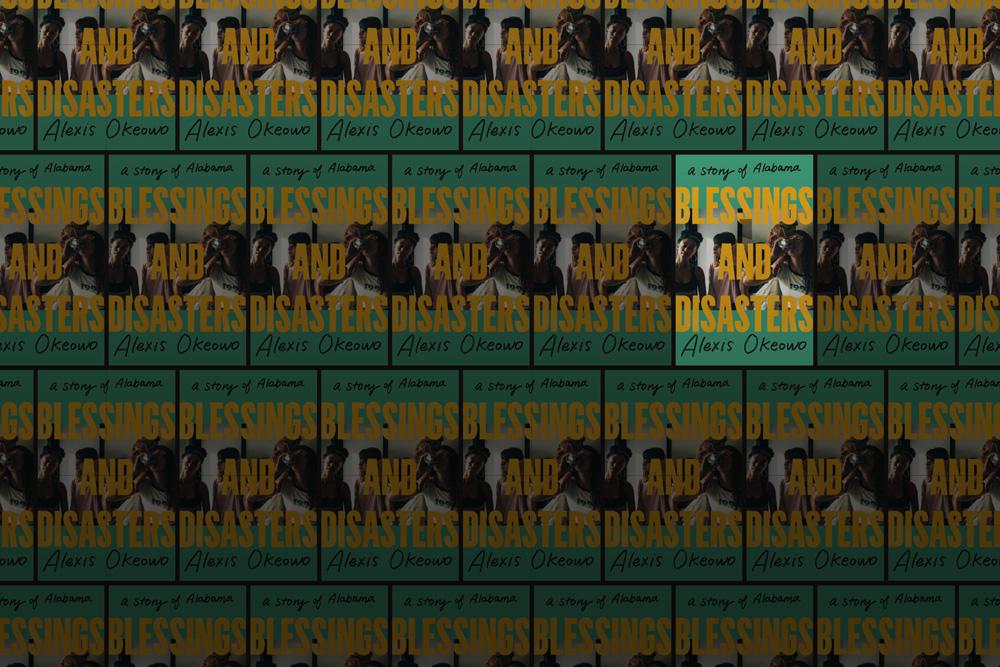For many Americans, Alabama is the center of America’s unchanging South, a place with a history so painful that nothing good can ever emerge from it. Yet Montgomery, Alabama, native Alexis Okeowo, a New Yorker staff writer and PEN Award winner, introduces the nuances that meld her Alabama upbringing with her Nigerian heritage to uncover fresh perspectives on these convulsions and challenges. Her new book, Blessings and Disasters: A Story of Alabama, blends autobiographical flair with deft insights into its political culture.
Okeowo has reported from Britain, Kenya, Mexico, Nigeria, and Uganda, and here at home she traces the legacies of racial violence, political injustices, and community resilience. Through these stories of indigenous peoples, Blacks, Latinos, whites, and recent immigrants, she probes how they remain deeply connected to a place that has caused them pain and how the love for a homeland can coexist with deep-rooted resistance to injustices that produces moments of progress.
This conversation has been edited and condensed.
Eyces Tubbs: What do Americans from other states misunderstand about Alabama?
Alexis Okeowo: The biggest is that they assume that Alabama is a more extreme version of wherever they came from, and as a result, more hopeless in a way. They assume that the extreme things that have happened in Alabama mean that its future is a foregone conclusion, that there is no potential, that it is too far gone and so defined by its past that it is impossible for them to think about its present. I talk about Alabama as a place that is obsessed with its past, but so is the rest of the country—and that’s to everybody’s detriment. They can’t imagine the good, the bad, and the just OK all existing together—even though that’s life. It’s like Alabama’s past obliterates that capacity for nuance.
You write that Alabama could become like Georgia politically, with the right leadership and messaging. What would that leadership look like? What’s standing in the way right now?
Unfortunately, something standing in the way is something the whole country is facing—and that is an extremism in our politics and how it seems so hard to find common ground among different political stripes. I don’t feel that that was the case earlier—in the 2000s, in the ’90s, in the ’80s—when Alabama did have Democratic governors. There was more willingness to talk, to compromise—not only to find common ground, but to seek humanity in people. There’s just no support for that way of thinking anymore. It’s all about how to be the most hateful and most extremist.
How does Alabama’s racial complexity—Black, Native, Latino, and immigrant—change how we should think about building political coalitions in the South?
I’ll actually bring up Georgia again because I think it’s a great example: Because of its ethnic diversity, it’s been able to mobilize that diversity, vote in progressive candidates. And while Alabama doesn’t have those numbers yet, it is happening. A lot of rural Alabama is becoming Latino. Immigrant groups continue to move to the state, [along] with Black progressives, white progressives—it comes down to the messaging and mobilization.
That also depends on a candidate being able to talk to folks there, because while people can be progressive on some issues, they can be more socially conservative on others. How do you appeal to those voters? The potential is there.
Many Alabamians, you say, believe “God is working for them, but the government certainly isn’t.” How does that mistrust shape civic engagement and voter turnout across racial and class lines?
It definitely shapes it. I can’t tell you how many people I talked to while reporting this book who told me they never voted or only recently voted for the first time That’s across different groups. A new kind of leader would have to be someone who is saying something different and who gets people mobilized by showing people they actually care about their constituents. That’s so hard to find these days.
What role do churches still play in shaping political engagement across race in Alabama? Is the Black church still a force in organizing?
The church still plays a huge role, and that the Black church absolutely does. Black churches have a responsibility to their members, to help guide them in a way and to look at candidates that will truly represent their interests. The Black church was so crucial back in the ’60s, ’70s—even earlier than that—and it can be a force, and it has been, for progressive change. It can lean even more into that. Even here in New York, we just had a mayoral primary election, and the influence of the Black church here is also huge. You can’t really win majority-Black voters without getting that influence. It has to be respected.
You’ve lived and reported across the globe: How does political resistance in Alabama compare to what you’ve seen elsewhere?
The biggest parallel is Alabama is known as a certain type of place. It’s this fixed idea of Alabama: People vote a certain way; they think a certain way; this is what happens there. So the resistance I’ve seen is when people who don’t conform to those stereotypes—who are progressive, who do care about the humanity of their neighbors and want to see change—they push against that anyway. It’s a really uphill climb, but they do it.
That is what I’ve seen in countries abroad: The odds are stacked in even more extreme situations where the culture is more politically repressive and it could be dangerous to speak out—but people are still pushing.

